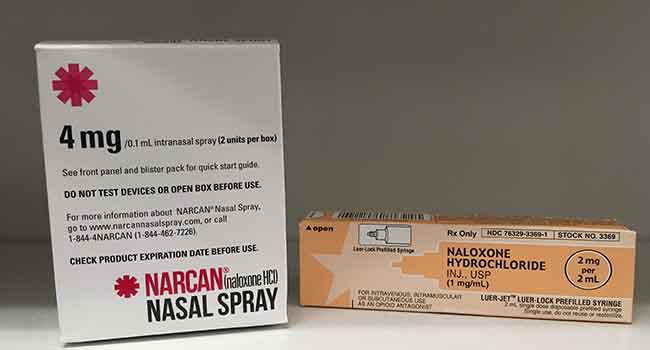
Opioid Overdose Antidote Kits Distributed to Arkansas School Nurses
Arkansas Governor Asa Hutchinson announced Tuesday that naloxone, the opioid-overdose reversal drug, would be made available in every school in the state.
- By Jessica Davis
- June 27, 2019
In light of the opioid epidemic, Arkansas school nurses are now being equipped with naloxone, a drug that can reverse overdoses. During a ceremony at the state Capitol on Tuesday, Gov. Asa Hutchinson presented naloxone kits to several nurses, saying the kits would provide an “important lifesaving capability for our schools.”
The Arkansas School Safety Commission recommended providing naloxone and training on how to use it in its final report, released in December. The commission noted that providing the overdose antidote was an important aspect of school safety, in addition to preparation for violent incidents.
According to Hutchinson, a recent federal government survey ranked Arkansas as the state with the highest percentage of students, grades nine through 12, who had taken pain medication without a prescription. Hutchison, who previously served as the administrator of the Drug Enforcement Administration, said preparing for the likelihood of overdoses shows a change in the way officials think about drug abuse.
"This is a technique with naloxone kits that would not have been considered in the ‘80s, even in the ‘90s, and probably even in the 2000s. Things have changed," Hutchinson said. "We recognize how opioid abuse has overtaken so many young people either through overprescribing [by doctors] or their own abuse, but the priority has to be in saving lives first and then changing behavior."
Hutchinson said that the $100,000 cost of the naloxone, also known by the brand name Narcan, was being paid for via a federal grant.
State Drug Director Kirk Lane emphasized how useful and important the overdose antidote can be.
"It enables life. It enables someone to breathe during an opioid overdose, and if people are alive and if people are in need of help, it enables a chance of a second chance of recovery, and that’s so important," Lane said.
State Rep. Julie Mayberry has voiced concerns related to the fact that not all Arkansas schools have a full-time nurse on staff. She said that schools who don’t have a nurse on campus could find themselves without an official trained to immediately administer Narcan when necessary. Having part-time nurses on campus only during specific hours or days isn’t enough, as no one can predict a medical emergency. She said.
"We want to make sure that every school has equal access to this, and the way to do that is to make sure that we have a school nurse on every campus," Mulberry said.
About the Author
Jessica Davis is the Associate Content Editor for 1105 Media.